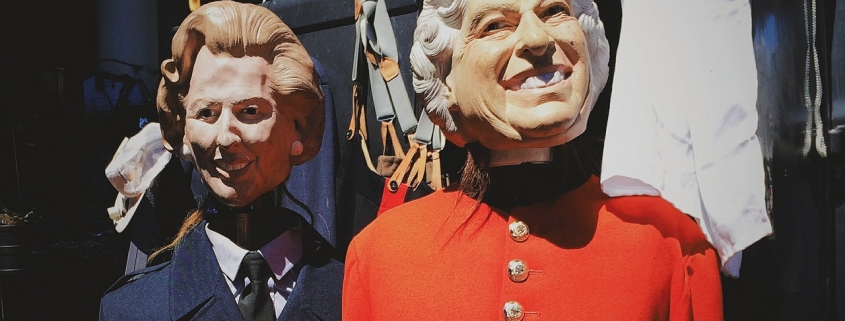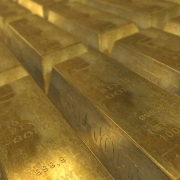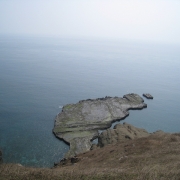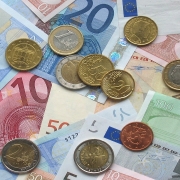How did Margaret Thatcher influence the end of the Cold War?
Topic of Study [For H2 and H1 History Students]:
Paper 1: Understanding the Cold War (1945-1991)
Section A: Source-based Case Study
Theme I Chapter 3: End of Bipolarity
Historical context
Margaret Hilda Thatcher was the former Prime Minister of the United Kingdom from 1979 to 1990. Described by the Soviet propagandist Krasnaya Zvezda as the ‘Iron Lady‘, she was known for her firm anti-Communist stance after rising to power in 1979.
A cold war warrior, an amazon philistine, even a Peking plotter. Well, am I any of these things? (No!) Well yes, if that’s how they … . (Laughter) … . Yes I am an iron lady, after all it wasn’t a bad thing to be an iron duke, yes if that’s how they wish to interpret my defence of values and freedoms fundamental to our way of life.
An excerpt from a speech by Margaret Thatcher, 6 February 1976.
A show of strength
Two years later, Ronald Reagan became the US President. Thatcher and Reagan then made joint efforts to counter the Soviet threats through military build-up.
In spite of anti-nuclear demonstrations such as the Campaign for Nuclear Disarmament, Thatcher agreed to deploy 160 cruise missiles as a form of nuclear deterrent against Soviet missile threats in Europe. Likewise, other NATO members like Helmut Schmidt of West Germany accepted the deployment of Pershing-II and cruise missiles.
Cards on the table: Negotiations with Gorbachev
In 1984, Thatcher met Gorbachev in London. Notably, she held the belief that Gorbachev was “a man with whom I could do business”. During the meeting, the two discussed arms control, which was a point of contention following Reagan’s announced plans for a Strategic Defence Initiative (SDI).
The other point which emerged was the Soviets’ distrust of the Reagan Administration’s intentions in general and of their plans for a Strategic Defence Initiative (SDI) in particular. I emphasised on more than one occasion that President Reagan could be trusted and that the last thing he would ever want was war.
… As the discussion wore on it was clear that the Soviets were indeed very concerned about SDI. They wanted it stopped at almost any price. I knew that to some degree I was being used as a stalking horse for President Reagan. I was also aware that I was dealing with a wily opponent who would ruthlessly exploit any divisions between me and the Americans.
An excerpt from a book titled “The Downing Street Years” by Margaret Thatcher.
Subsequently, Thatcher informed Reagan that Gorbachev was a Soviet leader that could be reasoned with. She believed that with the support of Gorbachev, it was possible for an improvement in East-West relations.
Interestingly, Gorbachev expressed similar sentiments towards Thatcher, following her passing on 8 April 2013. He described Thatcher as a “woman of character“, whose contributions had enabled him to work with Reagan in ending the Cold War. During the 1984 meeting, Gorbachev was already contemplating arms control, but his attempts were stopped short by the continuation of the military build-up by the West.
I then unfolded in front of Margaret a diagram divided into 1,000 squares. I said that if all nuclear weapons stockpiled primarily by the US and the Soviet Union were divided into 1,000 parts, then even one of them would be enough to cause irreparable damage to all life on Earth. The question was, why continue the race, what is the point of this insane competition?
Margaret argued the western viewpoint – and she was fully committed to it. In fact, she was the ideologue for the view that nuclear weapons were a necessary deterrent to the USSR. … I have to say that even later, and even after my meeting with Reagan at Reykjavik and the signing of the treaty eliminating all INF missiles, she continued to uphold her view of nuclear weapons. In one of our conversations, when we had already come to know each other well and were talking amicably, though as always, earnestly, I asked her why she felt so comfortable sitting on a nuclear powder keg.
An excerpt from an article titled “Mikhail Gorbachev: the Margaret Thatcher I knew” written by Mikhail Gorbachev and published in The Guardian, 8 April 2013.
Thatcher: A principal cheerleader
Although Thatcher had supported Reagan’s foreign policies to fight Communism, she had expressed her anger at the US invasion of Grenada in 1983 to topple the Marxist regime in a Commonwealth state. Later, a recorded conversation between the two had revealed that Reagan was apologetic over the Grenada invasion.
Nevertheless, the British Prime Minister was known to be a key supporter of Reagan even though they had contrasting personalities. Reagan had considered Thatcher’s advice and comments during his terms as President of the USA.
Reagan’s most stalwart partner abroad, however, was British prime minister Margaret Thatcher. Their philosophies on the role of government, the economy, and the approach to Cold War issues were nearly identical, even though Thatcher did not share Reagan’s dream of eliminating nuclear weapons or his enthusiasm for missile defense. Unlike some of her colleagues on the European continent, she seemed to understand Reagan’s qualities as a leader. She became, in her words, “his principal cheerleader in NATO.”
An excerpt from “Reagan and Gorbachev: How the Cold War Ended” by Jack Matlock.
What can we learn from this article?
Consider the following question:
– How far do you agree that political leadership was key in explaining the end of the Cold War?
Join our JC History Tuition to analyse contributing factors that led to the end of Bipolarity. The H2 and H1 History Tuition feature online discussion and writing practices to enhance your knowledge application skills. Get useful study notes and clarify your doubts on the subject with the tutor. You can also follow our Telegram Channel to get useful updates.
We have other JC tuition classes, such as JC Math Tuition and JC Chemistry Tuition. For Secondary Tuition, we provide Secondary English Tuition, Secondary Math tuition, Secondary Chemistry Tuition, Social Studies Tuition, Geography, History Tuition and Secondary Economics Tuition. For Primary Tuition, we have Primary English, Math and Science Tuition. Call 9658 5789 to find out more.











